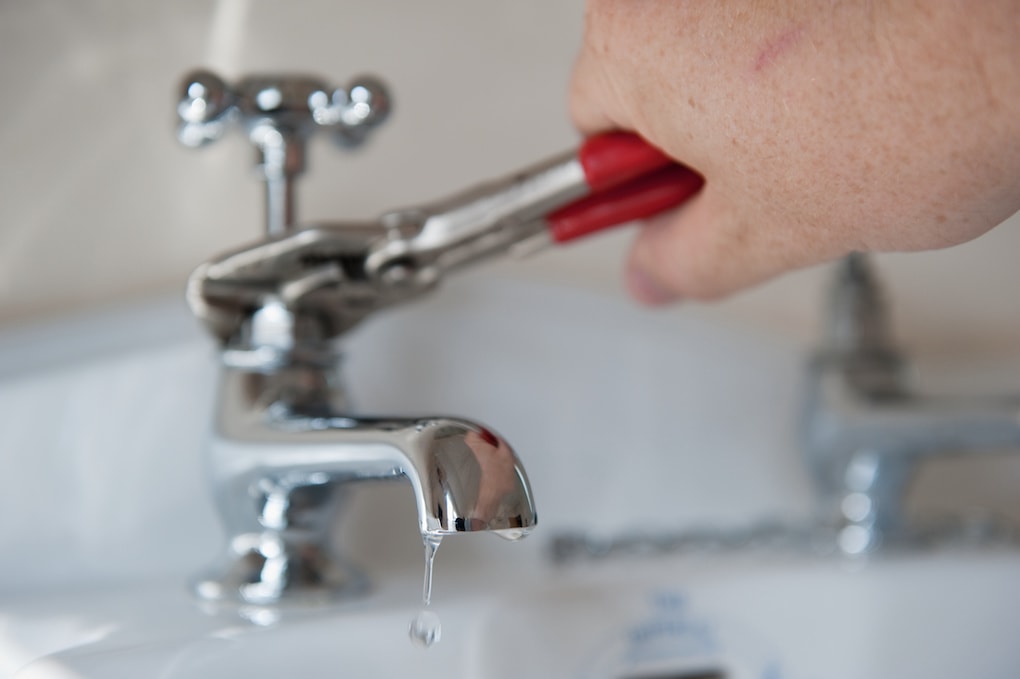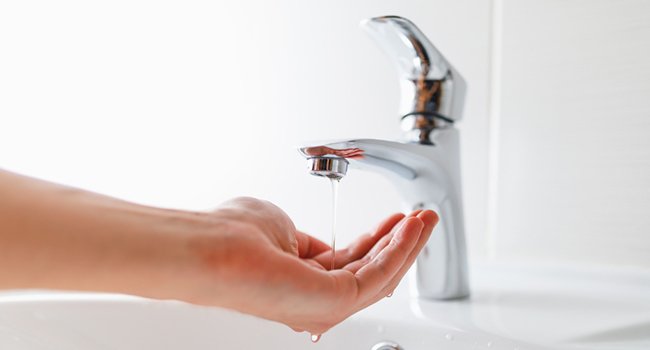Efficient Approaches for Overcoming Low Water Pressure in Your Home
Efficient Approaches for Overcoming Low Water Pressure in Your Home
Blog Article
Have you been searching for related information concerning 9 Reasons for Low Water Pressure in Your House?

Low water stress in your home can be an irritating issue, affecting whatever from bathing to washing dishes. If you're experiencing weak water circulation, there are numerous feasible causes and services to explore. In this overview, we'll go over typical reasons for low tide pressure and useful actions to resolve the concern efficiently.
Introduction to Low Tide Stress
Low water stress happens when the flow of water from your faucets, showers, and other fixtures is weaker than normal. This can make day-to-day tasks much more tough and much less effective. Comprehending the root causes of low tide pressure is critical to discovering the ideal service.
Usual Reasons For Low Tide Pressure
Pipeline Obstructions
In time, pipelines can come to be blocked with natural resource, debris, or debris, restricting the flow of water. This is a typical problem in older homes with galvanized steel pipelines.
Rust
Deterioration within pipelines can bring about leaks and minimized water stress. Rust buildup can restrict water flow, especially in maturing plumbing systems.
Faulty Pressure Regulatory Authorities
Pressure regulators are responsible for keeping regular water pressure in your home. If they malfunction, it can result in low tide pressure or uneven flow throughout your house.
Local Supply Of Water Issues
Often, the problem lies outside your home. Local water issues, such as main line leaks or maintenance work, can briefly minimize water pressure in your area.
Exactly How to Identify Low Water Stress
Examining Taps and Components
Beginning by evaluating the water pressure at different taps and fixtures throughout your home. If the issue is separated to certain locations, it may suggest localized troubles.
Checking Pipelines
Evaluate visible pipelines for indications of leakages, corrosion, or obstructions. Focus on any unusual noises, such as knocking or rattling pipelines, which could suggest problems within the plumbing system.
Consulting with a Plumber
If you're incapable to determine the cause of low tide stress, take into consideration employing a specialist plumber to carry out a comprehensive assessment. They can determine underlying problems and suggest appropriate solutions.
Do It Yourself Solutions to Repair Low Water Stress
Cleaning Aerators and Showerheads
Natural resources can accumulate in aerators and showerheads, lowering water flow. Remove and clean these parts routinely to improve water stress.
Flushing Hot Water Heater
Debris buildup in the hot water heater can limit flow and lower efficiency. Purging the tank occasionally aids get rid of debris and keep optimal efficiency.
Checking Pressure Regulator
Make sure that the stress regulator is operating properly. Readjusting or replacing the regulator can aid recover proper water stress throughout your home.
Clearing Clogs in Water Lines
For minor clogs, attempt using a plumbing serpent or chemical drain cleaner to clear blockages in pipelines. Be cautious when making use of chemicals and follow safety and security standards.
When to Call a Specialist Plumber
If DIY efforts stop working to settle the concern or if you presume significant plumbing problems, it's best to seek aid from an accredited plumber. They have the competence and tools to attend to intricate problems safely and successfully.
Safety Nets to Keep Water Pressure
Normal Maintenance
Schedule routine upkeep for your plumbing system to avoid issues such as rust, leakages, and obstructions. Attending to small problems early can aid avoid more significant repairs later on.
Setting Up a Stress Booster
Consider installing a pressure booster pump to enhance water stress in locations with consistently reduced flow. This can be specifically advantageous for multi-story homes or residential properties with high-demand components.
Tracking Water Usage
Be mindful of water usage behaviors and avoid ill-using the plumbing system. Simple modifications, such as incredible showers and washing tons, can assist keep ample water pressure.
Conclusion
Handling low water pressure can be discouraging, yet identifying the underlying causes and executing suitable services can bring back optimal flow throughout your home. Whether it's cleaning aerators, inspecting pipes, or talking to a plumber, taking positive steps can make certain a constant supply of water for your everyday needs.
How to Fix Low Water Pressure In Your Home
Municipal Water Supply Issues
Scheduled maintenance, high demand, and water main breaks are all potential causes for low water pressure within a city or county’s water lines. While there’s not much you can do to personally fix a problem with your city or county’s water supply system, you can play a big role in documenting the issue and alerting those who can.
How to fix it:
Ask your neighbors if they are experiencing any issues with low water pressure. If multiple homes are affected, it’s likely related to the city’s water line.
Contact the local Water Authority to see if there is any maintenance taking place that might be affecting your supply. Also let them know of your specific issues. If other homeowners report the same issues, they’ll know that there could be a larger issue to look into.
Faulty Fixtures
A damaged or clogged shower head, faucet or appliance is the first thing we’d suggest checking, especially if low water pressure appears to be isolated to a specific area of your home.
How to fix it:
First, turn off the main water supply to your home.
Check the affected appliances for build-up or debris. In the case of a faucet, you can simply unscrew the aerator at the tip of the faucet. Showerheads should be fully detached from the water pipe.
While the appliances are detached, you may want to check the water supply to determine if the fixtures were in fact the issue.
To clean, soak the showerhead or aerator in vinegar and brush off any visible debris.
Reattach the fixtures and check the water pressure again. If it is still low, there is likely a deeper issue at hand, which can be determined by a professional plumber.
Pipe Obstructions
Mineral deposits, rust or other debris within water pipes can lead to blockages or corrosion over time.
How to fix it:
When you think of a clog, you probably think of a drain clog. While there are many DIY solutions to clearing a drain, clogs in a water pipe will almost always require the help of a professional plumber. A plumber will be able to locate the affected pipe and clean out any debris or mineral deposit buildup. In severe cases, the pipe may need to be replaced. Your plumber might also recommend a water softening system to remove the minerals from your home’s water supply that can contribute to pipe blockages over time.
Plumbing Leak
Undetected water line leaks can divert water away from your residential pipes, reducing the water pressure in your fixtures.
How to fix it:
Check your water meter by turning off all water sources and monitoring the meter for any movement, which could be a clear indicator of a potential leak.
Check all visible pipes for signs of leaking, including water stains, active dripping or damp spots around the pipe.
Inspect fixtures, including faucets and showerheads, for any drips.
Test the pressure but recording the pressure with the main water valve shut off. Leave off for a few hours and test again. A significant drop in pressure is a clear sign of a leak.
https://kiddcoplumbing.com/plumbing-blog/how-to-fix-low-water-pressure/

How to Fix Low Water Pressure In Your Home
Municipal Water Supply Issues
Scheduled maintenance, high demand, and water main breaks are all potential causes for low water pressure within a city or county’s water lines. While there’s not much you can do to personally fix a problem with your city or county’s water supply system, you can play a big role in documenting the issue and alerting those who can.
How to fix it:
Faulty Fixtures
A damaged or clogged shower head, faucet or appliance is the first thing we’d suggest checking, especially if low water pressure appears to be isolated to a specific area of your home.
How to fix it:
Pipe Obstructions
Mineral deposits, rust or other debris within water pipes can lead to blockages or corrosion over time.
How to fix it:
When you think of a clog, you probably think of a drain clog. While there are many DIY solutions to clearing a drain, clogs in a water pipe will almost always require the help of a professional plumber. A plumber will be able to locate the affected pipe and clean out any debris or mineral deposit buildup. In severe cases, the pipe may need to be replaced. Your plumber might also recommend a water softening system to remove the minerals from your home’s water supply that can contribute to pipe blockages over time.
Plumbing Leak
Undetected water line leaks can divert water away from your residential pipes, reducing the water pressure in your fixtures.
How to fix it:
https://kiddcoplumbing.com/plumbing-blog/how-to-fix-low-water-pressure/
As a reader about 10 Reasons for Low Water Pressure in Your House, I thought sharing that excerpt was smart. Liked our entry? Please quickly share it. Let somebody else locate it. Many thanks for your time spent reading it.
Book Report this page